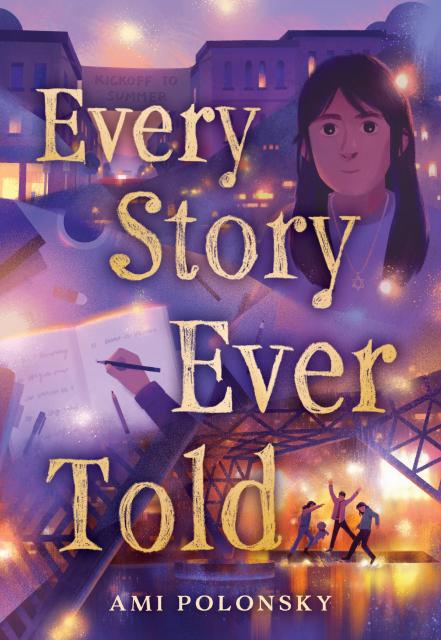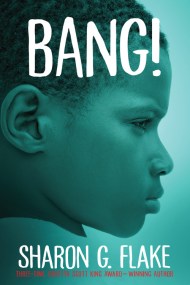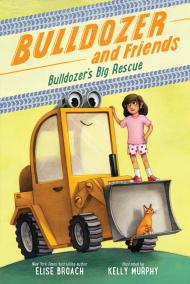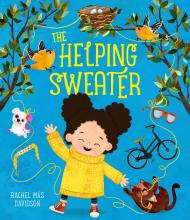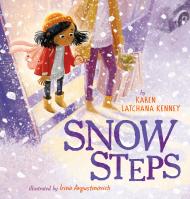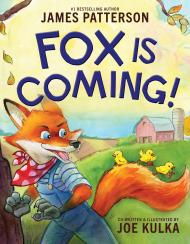By clicking “Accept,” you agree to the use of cookies and similar technologies on your device as set forth in our Cookie Policy and our Privacy Policy. Please note that certain cookies are essential for this website to function properly and do not require user consent to be deployed.
Every Story Ever Told
Contributors
By Ami Polonsky
Formats and Prices
Price
$16.99Price
$22.99 CADFormat
Format:
- Hardcover $16.99 $22.99 CAD
- ebook $9.99 $12.99 CAD
- Audiobook Download (Unabridged) $18.99
Also available from:
In this life-affirming novel of trauma and recovery, a girl searches for a path forward after being forced to confront the reality of gun violence, for fans of Dusti Bowling and Jasmine Warga.
Stevie Jane Cohen-Kaplan’s sheltered suburban life is shattered by a mass shooting at a festival in her town. In the aftermath, her brain feels broken. She can’t bear to visit her mom, recovering in the hospital under Stevie’s dad’s watchful eye, or to be pent up in her grandparents’ nearby Manhattan apartment.
To escape the apartment and her own thoughts, Stevie starts adventuring around New York City with her best friend, Avi, and a new therapy dog (in training). The trio starts chasing stories—about a neighbor’s life after the Holocaust, Stevie’s grandfathers who died of AIDS long before she was born, and even about her own mom’s activist upbringing. These stories may not bring Stevie all the way back to “normal,” but can they help her find a new version of herself?
Written with compassion and care, Every Story Ever Told places readers at the center of their own story and within a larger human tapestry, as one girl tries to make sense of the unthinkable.
-
“Ami Polonsky's Every Story Ever Told is a lyrically written, moving story about family, friendship, and the desperate need to tell our stories to a broken world. Some stories may feel too painful to speak out loud, but those can end up being the most important ones we'll ever tell and the most important for others to hear. Even when we can't yet see the ending, even when we only have beginning or a middle, we give others the opportunity to add to our story and finish it. And those stories, written across generations, really can make the world a better place.” —Dusti Bowling, bestselling author of The Canyon’s Edge and Insignificant Events in the Life of a Cactus
-
School Library Journal, starred review
* “Deeply moving … A sensitive and powerful look at grief with the uplifting reminder that even with all the bad crowded in, there is still room for joy and happiness. Highly recommended.”
-
Booklist
“Stevie's first-person voice is beautifully realized ... A sensitive story of guilt and trauma.”
-
Kirkus Reviews
“A buoyant tale of hope…A poignant and powerful tale of resilience.”
-
Kirkus, starred review
Praise for World Made of Glass
A Kirkus Best Children's Book of the Year
A School Library Journal Best Book of the Year
A CCBC Best Book of the Year
A Chicago Public Library Best of the Year
A Horn Book Fanfare Pick* “The book shows a girl focusing her rage and pain into love…. Simultaneously sad and life affirming; a poetry-filled, inspiring call to activism.”
-
Publishers Weekly, starred review
* "Foregrounding believable, dynamic characters [this novel shows] both the cost of inaction and fear around the HIV/AIDS crisis, and the power of activism to bring change and build community."
-
* “This is the best kind of family story, filled with love and, yes, loss, but most importantly with caring. The narrative is lyrical and heartfelt, and young people will be inspired to see Iris transcend her grief, use her voice, and find a way to make a difference.” –The Horn Book, starred review
-
School Library Connection, starred review
* “Ami Polonsky has crafted a beautiful story which speaks of courage, family, love, anger, discrimination, ignorance, and hope.… Polonsky has delivered a powerful message to us all that should not be passed up.”
-
School Library Journal, starred review
* “Beautifully written…with its sensitive portrayal of loss, and its carefully researched depiction of a devastating time in American history, this lyrical novel is highly recommended.”
-
BCCB
“Impeccably written and emotionally powerful.”
-
Booklist
“A valuable education in AIDS history and emotional wellness.”
- On Sale
- Oct 29, 2024
- Page Count
- 256 pages
- Publisher
- Little, Brown Books for Young Readers
- ISBN-13
- 9780316570978
Book Club Guide
- Every Story Ever Told opens with a countdown clock. What are other instances of time being significant in this story? Why do you think time is used as a motif in the novel?
- After her mom is shot by a random mass shooter, Stevie thinks, “Mom was in the hospital because of me,” (p. 42). What does Stevie do in response to this feeling of guilt? Are there other characters who also feel guilty? Does their guilt make sense?
- How does the shooting affect Stevie’s dad? And how does his behavior make Stevie feel?
- Stevie’s neighbor, Evelyn, suggests that Stevie and Avi wander around New York City while Stevie’s mom is in the hospital. How does experiencing “the sounds” and “the sights,” (p. 54) of New York help Stevie?
- Evelyn tells Stevie about her Star of David necklace that was saved by a brave friend, Dora, when Evelyn’s family was taken to a concentration camp during the Holocaust. What does Evelyn mean when she says Dora did it “for the story” (p. 163)?
- Both Stevie and Evelyn give a lot of thought to their names as they cope with trauma. What is noteworthy about both of their names? In what other ways are their two stories similar?
- Why does Stevie’s mom’s mural depict her and her friends aiming slingshots? And later, why does Stevie feel that everyone she loves, inside her “crowded heart” (p. 229), is holding loaded slingshots? What do you think they are aiming at?
- Avi is the person Stevie tells everything to. So why is it so hard for her to talk to him after the shooting?
- At The Center, Jonas tells Stevie, “The feeling of surviving with AIDS could, at times, feel just as overwhelming as the diagnosis” (p. 129). What do you think Jonas means by that? Can the same truth be applied to other survivors in this story?
- What do you think the “fluorescent-yellow haze” (p. 83) that follows Stevie around represents? What tool does Stevie use to inevitably confront the haze?
- The book ends with a poem by Stevie. How does poetry bring Stevie closer to her mom and deceased grandfather? How does the final poem relate to the title of the book?
- At the beginning of the novel, Stevie’s dad is adamantly against adopting a dog, so how does he react when he learns about Stevie’s emotional support dog, Raisin?
- If you’ve read World Made of Glass—which is about Stevie’s mom—what is similar about the two stories? How are they different?
- In what ways do the characters in this book persevere despite senseless violence? What lessons can you take from this book into your own life?
Newsletter Signup
By clicking ‘Sign Up,’ I acknowledge that I have read and agree to Hachette Book Group’s Privacy Policy and Terms of Use
